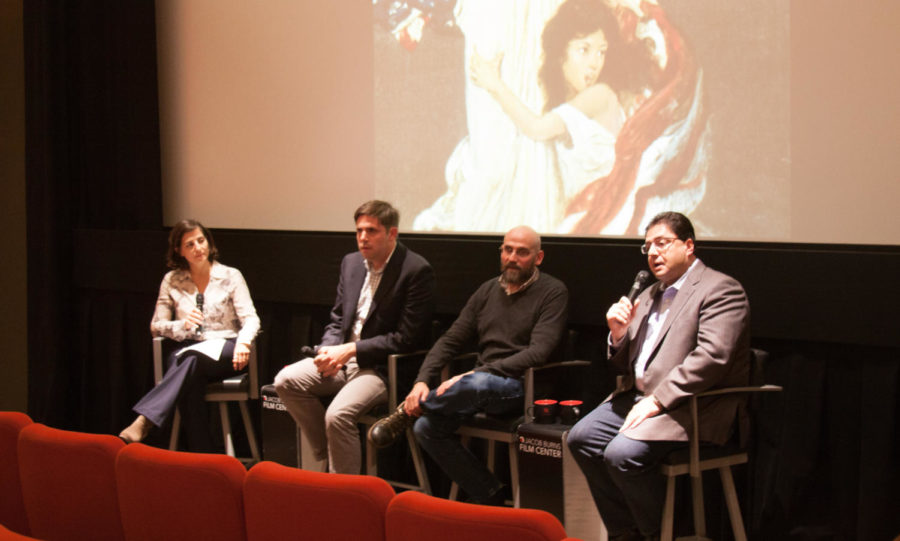Professors, Filmmakers Consider Armenian Genocide at Jacob Burns
A panel gathered at The Jacob Burns Film Center to discuss the Armenian Genocide. Photo by Jack Fozard
Following the screening of They Shall Not Perish at the Jacob Burns Film Center, a panel was held to discuss in-depth the issues the film explores regarding the Armenian Genocide, and to recognize the efforts of the Near East Relief in wake of the genocide.
The film itself focuses on the aid that the US provided in the form of the Near East Relief, now the Near East foundation, which helped save over one million people total from the lethal grip of the genocide that plagued Turkey in 1915.
From a starting budget of $100,000, the relief effort began, relocating displaced children in orphanages and aiding the others that made it out. Quickly, the funding ran out, and at such a crucial time, when the bulk of survivors were still arriving.
To solve this, the Near East Relief used groundbreaking methods to raise funds, using the new advent of film and the tried methods of writing and photography to encourage civilian philanthropy. The result was $116 million raised and a new way of raising funds that is used by humanitarian groups to this day.
“What the Near East did in the 1910’s was so novel, so new that people had never seen a campaign like this before,” says David Gutman, Assistant Professor of History at Manhattanville College and a panelist at the screening.
Gutman believes that the novel methods used were key to the level of awareness and outreach raised, saying that since then, “humanitarian campaigns have used these strategies now for a hundred years and in a sense, I think some people have become desensitized.”
For those looking to help in an effective way today, Gutman says, “The question is what is there now, what are the novel strategies that can be employed now to really mobilize interest, awareness, and the desire to [provide] philanthropy?”
As far as Shant Mardirossian, executive producer of the film and the grandson of a genocide survivor, is concerned; film is still a viable medium to raise awareness.
“Sometimes you see [documentaries] on a screen, on television, and you think it’s so big, how did that get there? But it’s just one person deciding to do something.” says Melanie La Rosa, Assistant Professor of Film and Media at Pace.
For La Rosa, film is a medium that students and dedicated professionals alike can use to inspire change, saying, “You pick up a camera and you care about a story enough to go through the work.”
“The most important takeaway, for me, is that there was an international relief effort,” said La Rosa of the importance and message of films like They Shall Not Perish. “It really is that same message- somebody that wants to help [can make] it happen.”
Your donation supports independent, student-run journalism at Pace University. Support the Pace Chronicle to help cover publishing costs.

